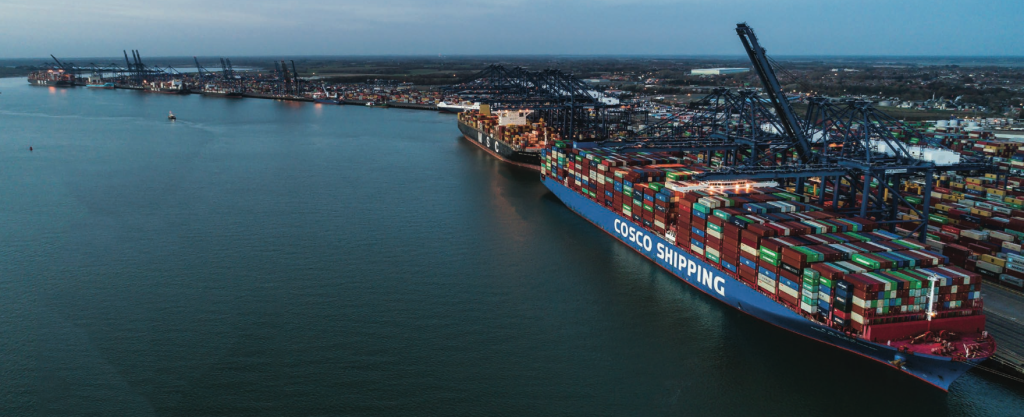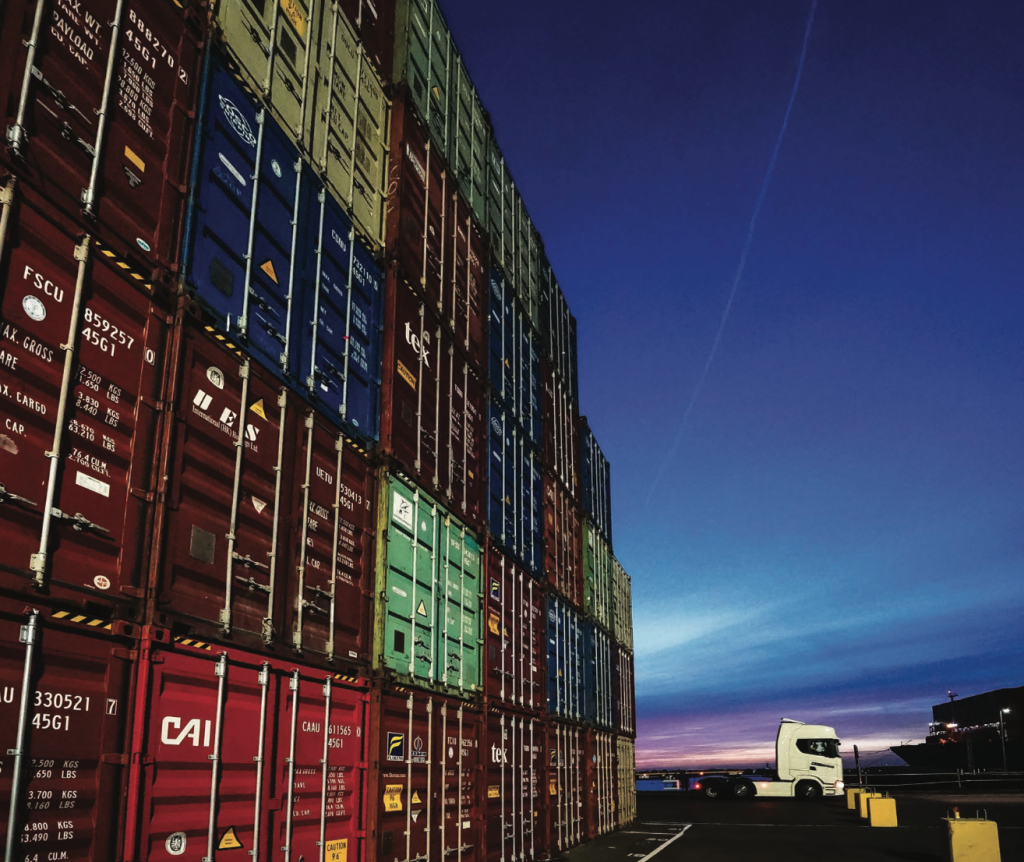Greeting cards affected with UK port closed to container ships – call for retailers to get orders in early
This week’s strike at Felixstowe port has been adding to greeting card and calendar publishers’ transport and supply chain woes just as the Christmas countdown begins.
Over 1,900 workers at the UK’s largest container port, which transports 48% of containers brought into the country, started eight days of strike action on Sunday, running through to Monday, 29 August, causing severe disruption to international maritime trade as well as Britain’s haulage and logistics sectors.
While The Times reported the industrial action could lead to a £700million hit to trade, with disruptions to supplies particularly, the newspaper suggests, to retailers such as Asda, John Lewis, Tesco and Marks & Spencer, greeting card publishers are also being affected.

And, with businesses having suffered last year when global supply chains slowed as a result of the pandemic and the gargantuan Ever Given container ship blocking the Suez Canal for six days, Cardology co-owner David Falkner, who is also a GCA council member, is urging greeting card and calendar retailers to order early so they get stocks instore, especially with the seasonal trade shows of Autumn Fair, Top Drawer A/W and Scotland’s Trade Fair Autumn looming.
He told PG Buzz: “At Cardology, we see ourselves as very much a part of an integrated global economy, meaning we rely on partners based both in the UK and abroad, who consistently excel. Our learning from last year’s shipping crisis was just how much additional resilience we needed within our delivery network, and our proactivity is now paying off in terms of satisfied customers and our ability to offer timely delivery.

“Of course, there are downsides. It’s frustrating to recognise we now manage far more relationships with shipping partners than we do manufacturers, just to stand a fighting chance of accessing competitive costs. Quite aside from the time incurred, this sometimes makes for more transactional business relationships, which carry their own costs. Early ordering also means a cashflow sacrifice, which is always a big deal for any growing business owner and, as a licensee, we pride ourselves on our ability to anticipate and react to emerging trends – something also made harder when supply chains get sticky.
“So, while we’re fortunate to be in a strong position going into Christmas at Cardology and can currently ship from stock straightaway, all of us as an industry do need this dispute resolved quickly.
“Without prescribing an exact solution, it strikes me as hard to disaggregate the industrial dispute from the repeated, increasing profit forecasts some big names within the industry have made following the prolonged disruption at ports since the start of the pandemic, nor of the significant barriers to entry which prevent new entrants entering key sectors within the international shipping market.”

Danilo’s founder and chairman Laurence Prince was interviewed on BBC Radio 5 Live’s Sunday Breakfast show at the weekend, where he told host Hayley Hassall the company produces 50% of its officially licensed cards, calendars and stationery in the UK while the rest comes from China and the Far East with delivery schedules planned six months in advance – and fines if deliveries to the big store customers aren’t on time.
“We have timed deliveries to go in to all the major stores in this country,” Laurence added, “and these have to be met because they have to put stuff out on the shelves and the public has to buy them. To give you an idea, two years ago we were paying $2,000 (£1,700) per container, last year we paid $20,000 (£17,000) – that’s a 1,000% rise – so you can understand the frustration we’re going through.
“Typically, we have 60 to 70 containers a year, at this peak time we have around 20 due to arrive at either Felixstowe or Southampton within the next four weeks. This week we had three containers due to arrive at Felixstowe across two vessels. One of the vessels is a very large one and it would usually take the port of Felixstowe four to six days to unload them – because of the strike this vessel will miss docking at Felixstowe and go on to its various European ports and only come back to the UK three weeks later.
“The ports have a tight schedule and this will have a knock-on effect with our stocks due in the next four weeks. Even after the strike has ended, we’ve got to get the containers unloaded and we’ve already been through this with the pandemic, trying to get lorry drivers to bring the stuff out.”
The dockworkers decided to strike after demanding a pay rise due to the current levels of soaring inflation and in recognition of their work during the pandemic when they accepted below-inflation pay settlements. After the port of Felixstowe offered a 7% rise and a one-off £500 payment to staff, talks broke down and the dockworkers’ union Unite called the industrial action.
Global transport and logistics firm DSV is among those which have taken alleviatory measures, including removing as many containers as possible off-quay and into off-dock holding areas ahead of the strike, as well as utilising rail terminals and off-dock storage yards to enable strategic movements and deliveries during the eight-day action.
Top: Strike action has closed Felixstowe port
























